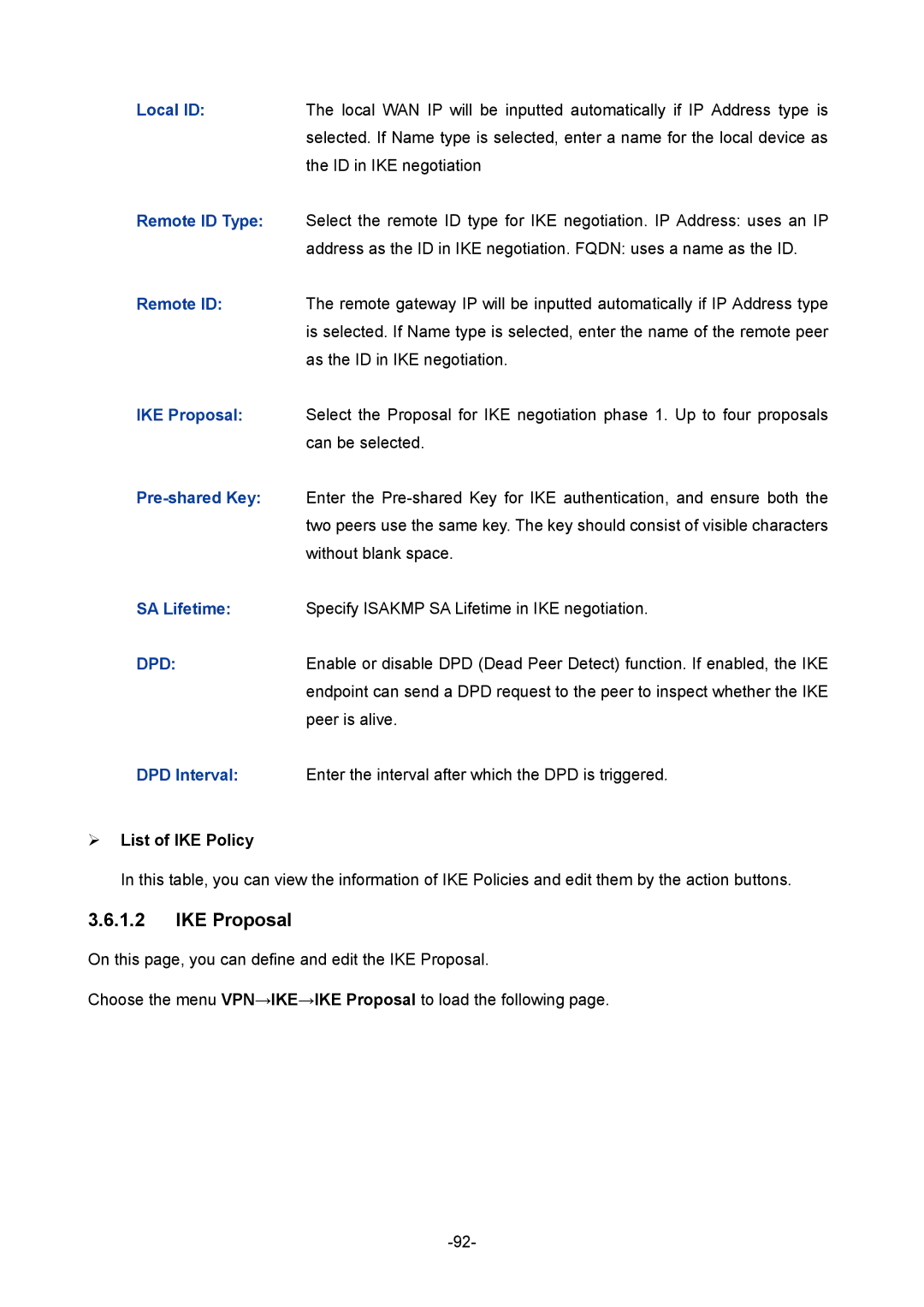Local ID: | The local WAN IP will be inputted automatically if IP Address type is |
| selected. If Name type is selected, enter a name for the local device as |
| the ID in IKE negotiation |
Remote ID Type: | Select the remote ID type for IKE negotiation. IP Address: uses an IP |
| address as the ID in IKE negotiation. FQDN: uses a name as the ID. |
Remote ID: | The remote gateway IP will be inputted automatically if IP Address type |
| is selected. If Name type is selected, enter the name of the remote peer |
| as the ID in IKE negotiation. |
IKE Proposal: | Select the Proposal for IKE negotiation phase 1. Up to four proposals |
| can be selected. |
| Enter the |
| two peers use the same key. The key should consist of visible characters |
| without blank space. |
SA Lifetime: | Specify ISAKMP SA Lifetime in IKE negotiation. |
DPD: | Enable or disable DPD (Dead Peer Detect) function. If enabled, the IKE |
| endpoint can send a DPD request to the peer to inspect whether the IKE |
| peer is alive. |
DPD Interval: | Enter the interval after which the DPD is triggered. |
List of IKE Policy
In this table, you can view the information of IKE Policies and edit them by the action buttons.
3.6.1.2IKE Proposal
On this page, you can define and edit the IKE Proposal.
Choose the menu VPN→IKE→IKE Proposal to load the following page.
